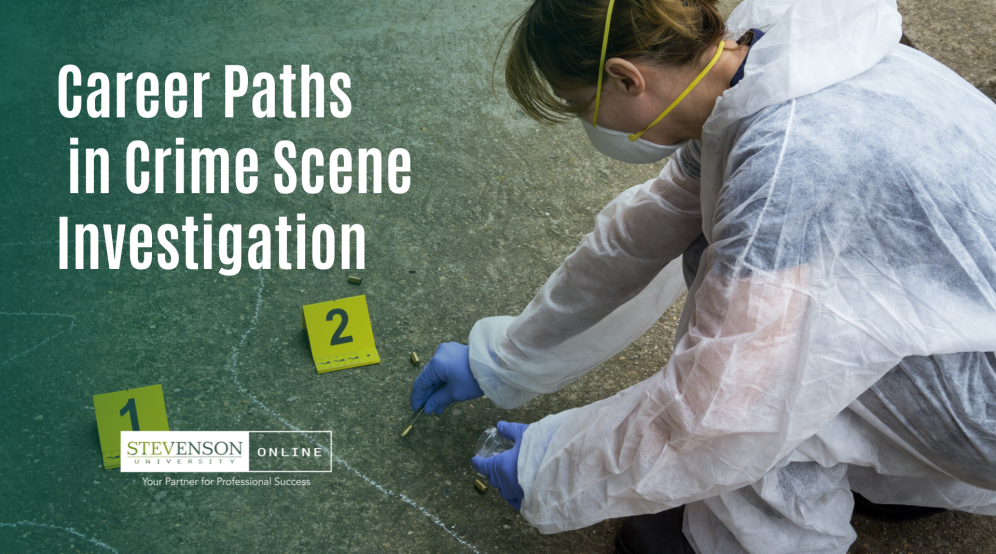Crime scene investigation (CSI) is an exciting and challenging field that offers a wide range of career opportunities for individuals with a passion for forensics and criminal investigation. From processing evidence at the scene of a crime to reporting their findings in a courtroom setting, professionals in this field play a critical role in the criminal justice system.
Before pursuing a career in CSI, it is important to understand the different job roles available, the required qualifications, and the path to achieving your desired position.
An Introduction to Crime Scene Investigation
Crime scene investigation is a crucial aspect of the criminal justice system. It involves the analysis of physical evidence found at a crime scene to help law enforcement officers piece together the events that took place and identify suspects.
Crime scene investigators use various methods and techniques to collect and analyze evidence, such as DNA, fingerprints, and ballistics, and their work can make the difference in solving a case. The field of CSI is constantly evolving, with new technologies and techniques being developed to aid in investigations, making it an exciting and dynamic career path for those interested in forensics or criminal justice.
In terms of education requirements for a job in crime scene investigation, many employees prefer individuals with a bachelor’s or master’s degree. Some agencies may also require a graduate degree or additional training depending on the specific role.
In addition to formal education, experience working in law enforcement, as well as strong analytical, communication, and problem-solving skills, may be helpful to be considered for a job in the CSI field.
Many employers also require candidates to pass a background check and to be able to meet physical and other job-related requirements.
Crime Scene Investigation Careers
The field of crime scene investigation offers a diverse range of career opportunities for individuals interested in the intersection of forensics, law enforcement, and criminal justice. There are various CSI career paths, all of which require a particular set of skills, education, and training.
This section will explore the various jobs in crime scene investigation and provide insights into the education and skill requirements for each.
| Career Path | Education Requirement | Typical Job Roles | Salary Range |
| Crime Scene Investigator | Bachelor’s degree in crime scene investigation or related field | Processing crime scenes and collecting evidence | $40,000 – $75,000 per year |
| Crime Scene Photographer | Bachelor’s degree in photography or related field | Documenting crime scenes and evidence through photography | $30,000 – $70,000 per year |
| Crime Scene Technician | High school diploma or GED, on-the-job training | Assisting with evidence collection and processing | $25,000 – $50,000 per year |
| Evidence Technician | Bachelor’s degree in crime scene investigation or related field | Collecting and processing evidence | $40,000 – $70,000 per year |
| Fingerprint and DNA Specialist | Bachelor’s degree in biology, chemistry, or forensic science | Analyzing fingerprints and DNA evidence | $50,000 – $80,000 per year |
| Forensic Artist | Bachelor’s degree in fine arts or related field | Creating composite sketches and facial reconstructions | $30,000 – $90,000 per year |
The information in the table above is intended to provide a general overview of the education requirements, typical job roles, and salary ranges for various CSI career paths and may not reflect the specific requirements and salaries in every region or organization. Actual education requirements, job roles, and salaries may vary based on factors such as experience, location, and employer policies.
Crime Scene Investigation Job Outlook
The job outlook for crime scene investigation careers is generally positive. According to the United States Bureau of Labor Statistics, employment of forensic science technicians, which includes crime scene investigators, is projected to grow 11 percent from 2021 to 2031, which is much faster than the average for all occupations.
This growth is driven by the increasing demand for forensic evidence in criminal investigations, as well as advancements in technology that have made forensic analysis more accessible and effective.
However, competition for jobs in crime scene investigation can be high, and job seekers may benefit from additional education and training, as well as specialized skills and certifications, to improve their job prospects.
How to Accelerate Your CSI Career Path
Obtaining a master’s degree in crime scene investigation can provide you with advanced knowledge and skills necessary to excel in a competitive field. With a master’s degree, you may be equipped with the necessary knowledge and practical experience to become experts in the field, enabling you to apply for higher-level positions and gain more significant responsibilities. Additionally, a master’s degree in CSI enhances your credibility and professionalism, leading to better job prospects and higher earning potential.
Developed for working professionals, the Stevenson Crime Scene Investigation graduate program is offered fully online. With NO GRE requirements & NO application fees, we make it easy for professionals aspiring to earn a Master’s Degree in Crime Scene Investigation online through Stevenson University Online. Contact us today to find out how to enhance your career opportunities and become an expert in crime scene investigation.






